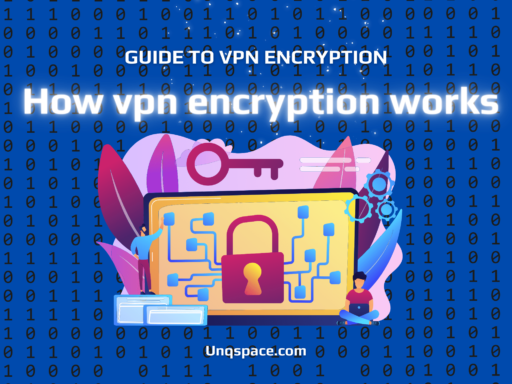Why VPN is Important for Business: 3 Reasons your Business Should Use a VPN
As technology continues to evolve, the need for businesses to have secure and remote access to their internet service has become more important than ever. In this article, we will explore the reasons why using a VPN, or Virtual Private Network, is an integral tool for any business.
Understanding the VPN: How does a VPN work?
The basics of a virtual private network (VPN)
A Virtual Private Network (VPN) fundamentally is a secure way for businesses to access the internet and share data across the internal network. VPNs create a secure connection over the internet, protecting your company network data from prying eyes.
How does a VPN protect your IP address?
VPNs work by masking your IP address. Your IP address is like a digital fingerprint that can link back to your internet service provider, and ultimately, you. A VPN reroutes your internet connection through a VPN server, providing you with a new IP address and keeping your original IP address hidden.
Can a VPN encrypt a business’ internet service?
Yes, one of the main reasons companies use a VPN is for the strong encryption it offers. Encryption is a vital layer of security that helps to protect your sensitive business data by converting it into code. This makes it harder for hackers or anyone else to access or tamper with your information.
The Need for a VPN: Is a VPN Important for my Business?
How a VPN is used by most businesses
Businesses need a VPN for a variety of reasons. These include secure remote access to files, protection of sensitive company information, and enabling remote work for employees. With VPNs, remote workers can access the internal network safely from anywhere.
3 reasons your business needs a VPN service
First, a VPN ensures secure remote access to your company network, necessary for the remote workforce. Secondly, it provides encryption for any data being transmitted, enhancing your business security. Finally, a business VPN can help maintain privacy by keeping your IP address hidden from the wider internet.
Business VPNs vs Individual VPN services
While individual VPN services can provide some level of security, business VPNs offer more resources and higher levels of encryption. In addition, business VPNs often offer tools for remote employees enhancing the security of the company network.
The Benefits a Business Gets from using a VPN
Securing remote access with a VPN
Using a VPN helps secure remote access to the company’s network. This is fundamental for businesses with a remote workforce, ensuring that remote employees can securely access the resources they need.
How a VPN can facilitate remote work
VPNs make remote work more feasible by providing a secure connection to the internal network from anywhere in the world. With a VPN, remote workers have the same secure access to company resources as if they were physically at the office.
Enhanced encryption from VPNs to protect your business
VPNs use encryption to protect your business data. This keeps your company data secure from potential threats such as hackers and keeps your company network safe.
Picking the Best VPN for your Business
Factors to consider when choosing a business VPN
When it’s time to choose a VPN for your business, consider factors like its security features, speed, number of available servers, and cost. Making the right choice is crucial as this tool will play a crucial role in your business operations.
Different types of business VPNs in the market
There are different types of business VPNs available, from remote access VPNs, which are perfect for businesses with a large remote workforce, to site-to-site VPNs, ideal for connecting multiple offices in various locations securely.
The benefits and drawbacks of free versus paid VPN solutions for businesses
While free VPN solutions may seem attractive, they often come with limitations such as slower speeds and fewer security features. Paid VPNs, on the other hand, offer higher speeds, better security, and more features but come at a cost.
Setting up a VPN: How to use a VPN for Business
Steps on how to access a business VPN
To access a business VPN, you would typically install the VPN software, enter your credentials, and connect to the desired VPN server. Instructions may vary based on the VPN provider, so it’s crucial to familiarize yourself with the process.
Best practices for using a VPN for remote employees
For remote employees, it’s recommended to always connect to the VPN when accessing company resources. Regular training on VPN usage and cybersecurity is also crucial to maintain a secure environment.
Maintaining a secure VPN connection for your business
Routines such as session timeouts, multi-factor authentication, and regular software updates are necessary to maintain a secure VPN connection. Remember, your VPN is only as secure as your safety measures.
In conclusion, a VPN is important for any business that values the security of its data and the flexibility of its employees. With the rise of remote work and evolving security threats, the need for a secure, accessible, and reliable VPN solution has never been greater.
FAQs
Q: Why is a VPN important for business?
A: A VPN is important for business because it provides enhanced security, anonymity and allows for remote access. It enables an employee to access their workplace’s network securely from a remote location. This is especially beneficial for businesses with remote workers. A VPN also hides your IP address, making it harder for cybercriminals to target your business.
Q: How does using a business VPN provide better security?
A: When your business uses a VPN, all data transmitted between the company’s network and an outside network is passed through a ‘VPN tunnel.’ This tunnel encrypts the data, making it unreadable to anyone who intercepts it. This ensures that sensitive company data is kept safe – a critical reason why VPNs are essential for businesses.
Q: What are the benefits of using a VPN for remote access?
A: A remote access VPN allows employees to securely connect to the company’s network and access resources from anywhere. Good business VPNs maintain high speed and ensure data security, even when employees are connecting through unsecured public Wi-Fi networks.
Q: What is the difference between a business VPN and a personal VPN?
A: While both types of VPNs offer privacy and security, a business VPN also provides a secure environment for remote access to company resources. On the other hand, a personal VPN is mainly used to secure data on a personal level, such as when connecting to a public Wi-Fi network.
Q: Can VPNs be used by businesses to secure site-to-site connections?
A: Absolutely! Site-to-site VPNs are used by businesses to connect and secure multiple networks in different locations. With a site-to-site VPN in place, data can be safely and securely transferred across these locations, ensuring no security compromises.
Q: Why are VPNs essential for businesses with remote workers?
A: VPNs are essential for businesses with remote workers because they allow secure access to company resources from any location. This ensures that employees can work efficiently from home or while traveling. Also, VPNs encrypt the data which is transferred between the remote worker and the company network, ensuring data privacy and security.
Q: How can companies choose the right VPN?
A: Companies need to consider several factors when choosing a VPN. These include: the number of users, the locations the company operates in, and the type of data to be transferred. VPN providers offer different packages to suit different needs, so it’s important to choose one tailored to your business requirements.
Q: Does using a VPN affect internet speed?
A: Yes, using a VPN can affect your internet speed. VPN encrypts your data and sends it through secure channels which could potentially slow down your internet. However, a good business VPN should provide reliable and fast connections to ensure minimal impact on data transfer speeds.
Q: How do companies use VPNs to protect themselves?
A: Businesses use VPNs to secure their internet connections and protect their data. By doing so, they prevent hackers and data thieves from accessing valuable company data. Moreover, using a business VPN can protect a company when employees need to connect to the network via public Wi-Fi, which is often unsecure.
Q: Is using a VPN client better than using a company’s built-in VPN?
A: It depends on the specific needs of a business. A built-in VPN may suffice for small businesses that are not heavily reliant on remote access or don’t have complex security requirements. However, a dedicated VPN client can provide better control, improved security, and can generally handle a larger number of users which makes it more suitable for larger businesses.






